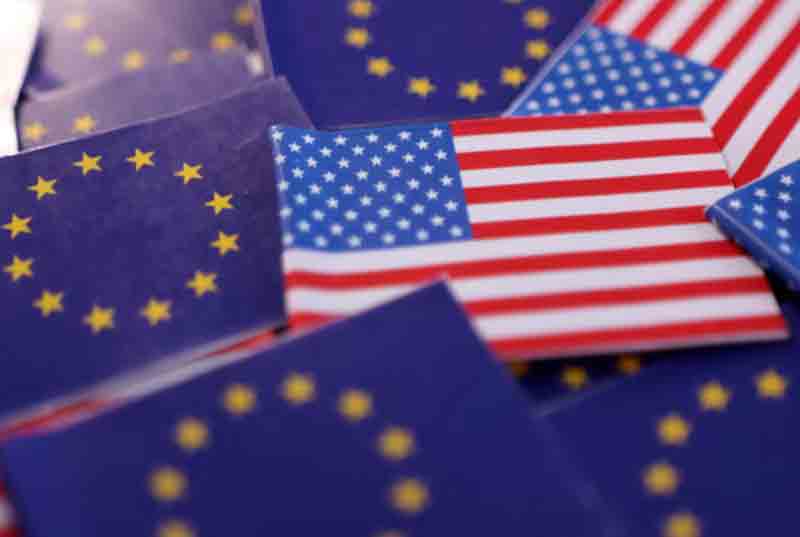On Monday, European Union ministers largely concurred on the need to prioritize negotiations aimed at eliminating tariffs imposed by President Donald Trump in retaliation, while simultaneously preparing a preliminary set of targeted countermeasures. The 27-member bloc is currently facing a 25% import tariff on steel, aluminum, and cars, along with “reciprocal” tariffs of 20% on nearly all other goods, effective Wednesday, as part of Trump’s strategy against countries he claims maintain high barriers to U.S. imports.
During a trade ministers’ meeting in Luxembourg, discussions centered on the EU’s response and its relationship with China. Many participants emphasized the importance of initiating negotiations to prevent a full-blown trade war. Dutch Trade Minister Reinette Klever remarked to reporters, “We must stay composed and respond in a manner that reduces tensions. The current state of the stock markets illustrates the consequences of immediate escalation. However, we are prepared to implement countermeasures if necessary to bring the Americans to the negotiating table.”
European Commission President Ursula von der Leyen stated at a press conference in Brussels that the EU is ready to pursue a “zero-for-zero” tariff agreement for industrial goods.
Negotiations with Washington have been challenging thus far. EU Trade Commissioner Maros Sefcovic characterized his two-hour discussion with U.S. officials on Friday as “frank,” expressing that their tariffs are “damaging and unjustified.” This week, the bloc is expected to approve an initial set of countermeasures targeting up to $28 billion worth of U.S. imports, including items from dental floss to diamonds, in response to Trump’s steel and aluminum tariffs, rather than the broader reciprocal tariffs.
However, this approach has not been without complications, as Trump has threatened a 200% counter-tariff on EU alcoholic beverages if the EU proceeds with a proposed 50% duty on U.S. bourbon. France and Italy, significant exporters of wine and spirits, have voiced their concerns.
The 27-nation bloc is anticipated to unveil a more extensive set of countermeasures by the end of April in response to U.S. tariffs on automobiles and other “reciprocal” tariffs.
In the ongoing tariff conflict, Brussels has fewer targets compared to Washington, as U.S. imports into the EU amounted to 334 billion euros ($366.2 billion) in 2024, while EU exports reached 532 billion euros.
French Trade Minister Laurent Saint-Martin emphasized that no options should be off the table, including the EU’s Anti-Coercion Instrument (ACI), which could enable the bloc to impose restrictions on U.S. services or limit American companies’ access to public procurement opportunities within the EU. “We cannot rule out any possibilities regarding goods or services, and we must consider the comprehensive and potentially aggressive European tools available to us,” he stated.
Conversely, some officials advocated for caution. Simon Harris, Ireland’s foreign minister, whose country sends nearly a third of its exports to the U.S., referred to the ACI as “very much the nuclear option” and expressed his belief that the prevailing sentiment in the EU is to avoid it for the time being.
German Economy Minister Robert Habeck, whose party, the Greens, will not participate in the next governing coalition, remarked that the EU should recognize its strong position if it remains united. “The stock markets are already in decline, and the potential damage could escalate… America is in a vulnerable position,” he noted in Luxembourg. He also pointed out that Elon Musk’s advocacy for zero tariffs between Europe and the United States underscores this reality. However, he cautioned that if each EU nation raises individual concerns about specific products like red wine, whiskey, or pistachios, the bloc risks achieving nothing substantial.
Discover more from Defence Talks | Defense News Hub, Military Updates, Security Insights
Subscribe to get the latest posts sent to your email.





